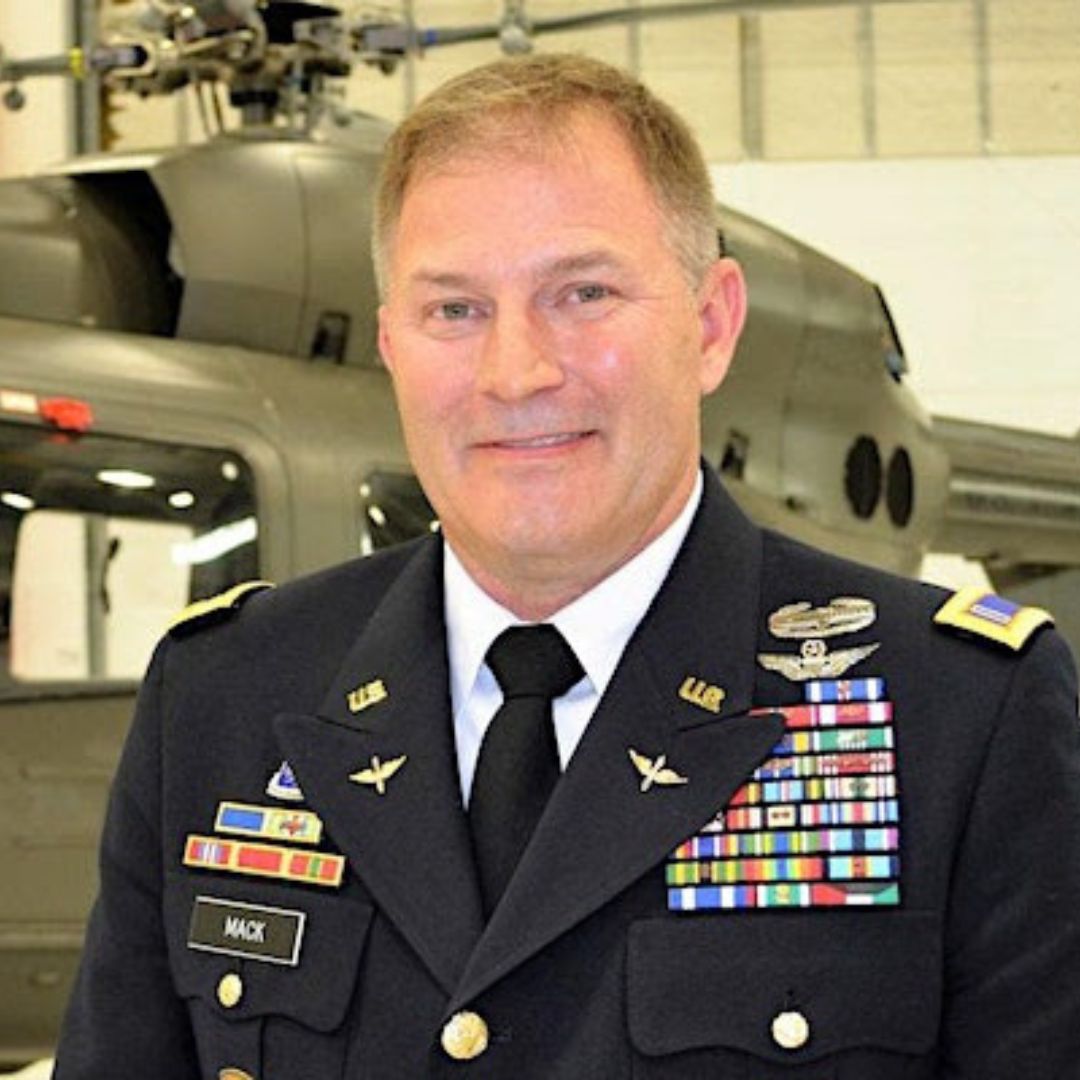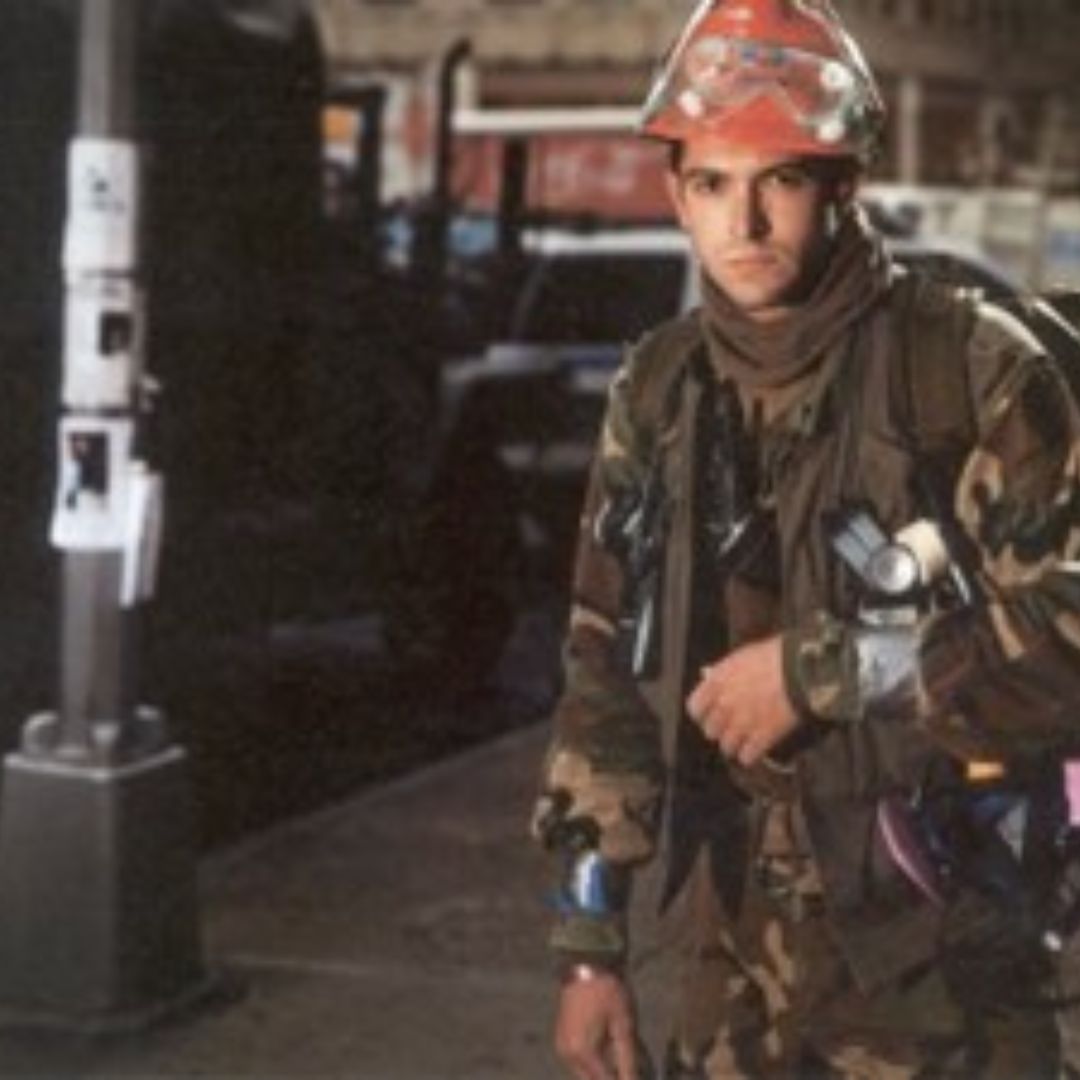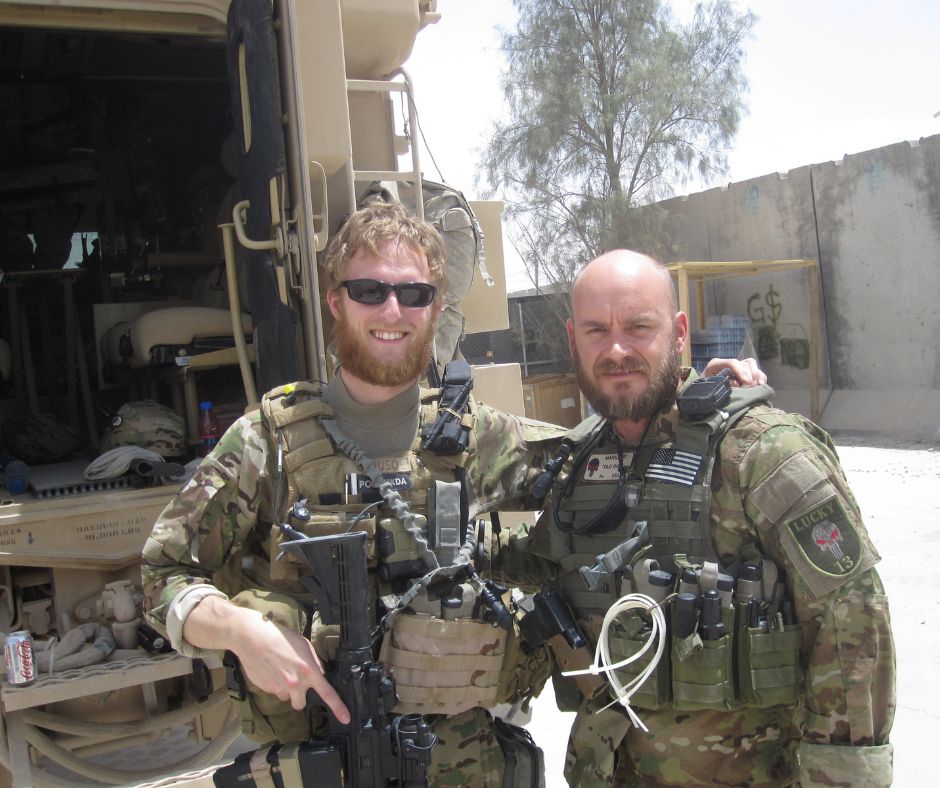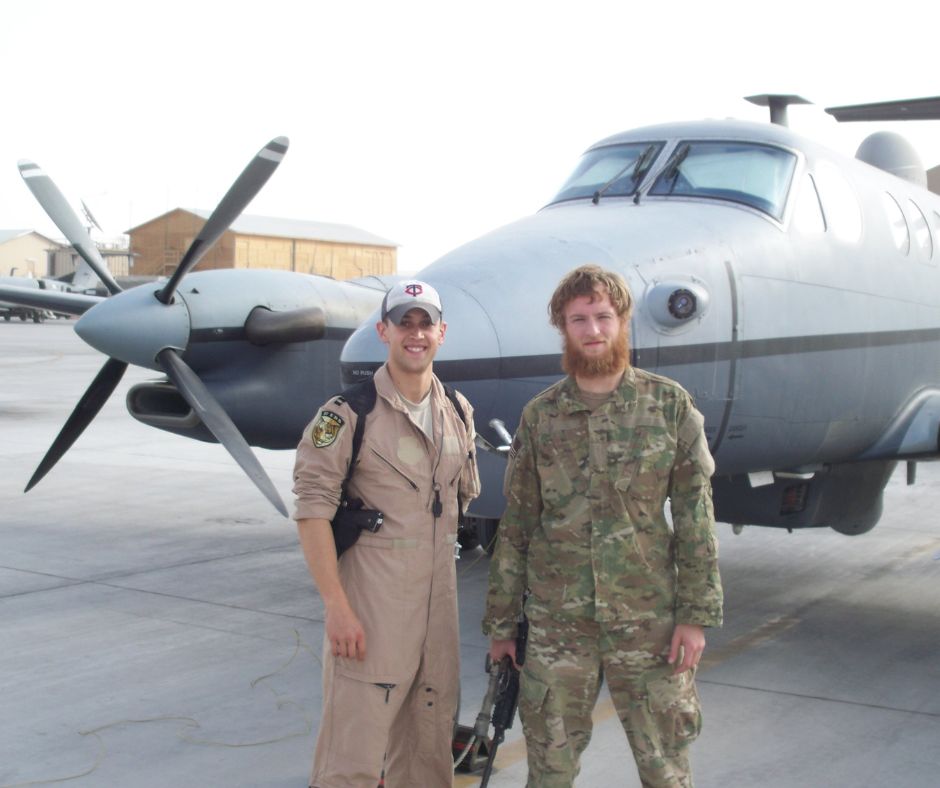Make a donation to the Museum
Visionaries in Service: Phil Caruso
Visionaries in Service: Phil Caruso
- November 29, 2022
Caruso on duty
As we close out National Veterans and Military Families Month, we are forever grateful for the men and women who are currently serving or have served in the U.S. military. Earlier this month, as part of our annual Salute to Service, we welcomed hundreds of visitors from the military community and recognized different branches through tributes on the memorial.
To mark the end of November, this installment of the Visionaries in Service series, highlighting the service and work of our Visionary Network, features Philip Caruso, an Air Force veteran who retired as a Major with two Bronze Stars. Today, he serves as Chairman and Executive Director of No One Left Behind, a non-profit focused on supporting former interpreters and U.S. government employees eligible for the Iraqi and Afghan Special Immigrant Visa program.
Why did you join the military?
As a child, I devoured history books, inspired by the many seemingly ordinary people in history who rose to the occasion when needed and became transformational leaders in our society (for example, Abraham Lincoln, Harry Truman, and hometown heroes like Frederick Douglass and Susan B. Anthony). I thought that I might one day do my part when the moment arose. That moment came for me while a high school student in Rochester, NY. On September 11, 2001, it was in my math class where we watched the towers fall on a television and I understood then that our country would never be the same. I wanted to contribute to our country’s confrontation of a challenging problem — terrorism — at a key moment in history, and so in 2004 when I graduated high school, I enlisted in the Air Force Reserve as an officer candidate. I completed ROTC at Cornell University and was commissioned in 2008.
What does service mean to you?
Public service is my ultimate motivation. I define that liberally: government service, charitable service, and private sector work with a strong concern for public welfare are all forms of service. Service guides both my ambitions and how I choose to spend my time. For example, after seven years of full-time military service I spent seven more in the Air Force Reserve and have spent thousands of hours as a non-profit volunteer while pursuing experiences in the private sector — but I will always serve. I hope to return to full-time government service again in my career.
What is No One Left Behind?
No One Left Behind is the oldest charitable organization focused specifically on supporting former interpreters and U.S. government employees eligible for the Iraqi and Afghan Special Immigrant Visa (SIV) programs. We help evacuate deserving SIV applicants to safety, and provide resettlement assistance to help them start new lives as Americans. We also advocate for our allies with the U.S. government, provide subject matter expertise to the media, and partner with other charitable organizations, advocacy groups, and major American employers to provide opportunities to new Afghan-Americans and Iraqi-Americans.
No One Left Behind was co-founded by Janis Shinwari, an Afghan interpreter for U.S. forces who saved the lives of five American soldiers in combat. When donors raised $35,000 to support his family's resettlement in 2013, he instead used the funds to co-found No One Left Behind. Ever since, Janis and No One Left Behind have paid his gratitude forward to new SIV recipients starting their lives as Americans.
I have been fortunate to serve on the Board of Directors since 2019, and I have been further fortunate to lead the organization as the Chairman and Executive Director since September 2021.
Photos from Caruso's time in the military
Why did you get involved?
During my two deployments to Afghanistan, I worked closely with an Afghan who risked his life to help us. At one point he was on the run from the Taliban in three provinces. By the end of 2014, with my return to the United States pending and concern for what might happen to him, I explored potential options to resettle him safely, including the Afghan Special Immigrant Visa (SIV) program. To be eligible for it, he needed paperwork that showed the scope of his employment for us — something we could not provide given the nature of his work.
By the end of my deployment, I had made no progress. I continued pursuing the case after I got home, but it was impossible, as the opacity and complexity of the program prevented me from finding the right inject point to make the case for him and explain the circumstances of his employment. When I left active duty, I lost my access to his information, and my successors were either unable or unwilling to push it any further forward.
After that, I carried a lot of guilt for failing him, which I still carry today. But I’ve tried to make the most of it by working as hard as I can to fix this program and save the lives of people like him.
Any advice to the next generation as it relates to service — either in one's community or in the military?
Public service is among the most honorable undertakings in our society, and I believe every American should find ways to serve during their careers, even if only temporarily. Service is a broad term — there are many ways to serve, whether it’s at a charitable organization, the military, or elsewhere in federal, state, or local government. It could be for a few years, or a career. It could be as an educator, firefighter, police officer, military member, civil servant, or in the political realm, among many other opportunities. All of those organizations need great Americans to make our governments better, more efficient, and ultimately more effective in responding to our citizens’ needs.
Compiled by Lauren Daly, Director & Community Affairs
Previous Post
New Book Recounts Planning of U.S. Response to Attacks, and Unexpected Impact

Alan Mack was the first pilot to fly into Afghanistan as the U.S. launched its military response to the 9/11 attacks. His new book recounts his experience in the planning and implementation of that response — and the impact it had on his family.
Next Post
Rescue & Recovery: In Their Own Voices With Bryan Stern

We're closing out Salute to Service with one more installment of our "In Their Own Voices" series. Here, Bryan Stern — a veteran and rescue and recovery worker — answers questions about his time in the military, his role in the clean-up at Ground Zero, and Project Dynamo, the organization he founded to help evacuate Afghan and now Ukrainian refugees.

